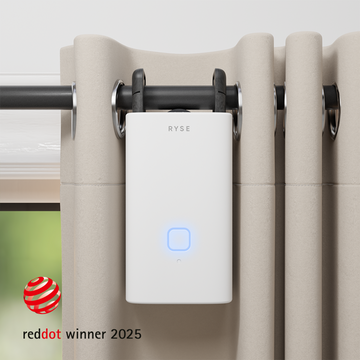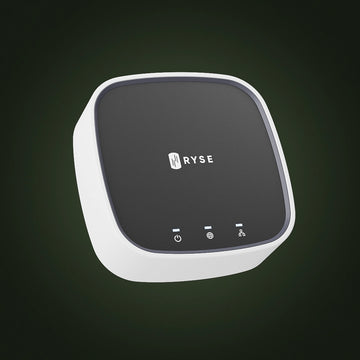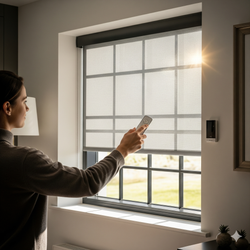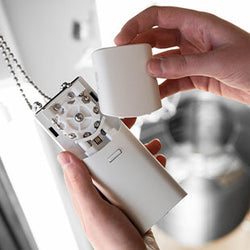What You’ll Learn
- Why teens need more sleep than adults, and what makes it harder for them to get it
- How school schedules and screen time impact teenage sleep patterns
- Practical tips (including tech help!) to support better, healthier rest during the teen years
How Much Sleep Do Teenagers Really Need?
Let’s be real: teens are often painted as lazy, dramatic, or just chronically glued to their phones. But behind the mood swings and midnight scrolling, there’s a powerful transformation happening: their bodies and brains are growing at lightning speed. And with all that growth comes one major, non-negotiable need — sleep.
Yet for many teenagers, getting enough rest feels like a losing game. Between early school start times, late-night homework, social lives, and screen time, sleep is often the first thing to get cut. But here’s the truth: teens aren’t lazy. They’re just biologically wired to need more sleep, and to get it at slightly different hours than adults.
This article isn’t about shaming late risers. It’s about understanding what’s really going on in a teenage brain and body, and why honouring those changing sleep needs can make all the difference in mood, focus, and long-term health.
Why Teens Need More Sleep Than Adults
Teenagers aren’t just growing taller — their brains are undergoing a massive remodel. During adolescence, the brain is rewiring itself to support adult-level thinking, emotional regulation, and decision-making. This process takes energy. A lot of it. That’s why most teens actually need 8 to 10 hours of sleep per night — more than most adults.
But here’s the twist: thanks to a shift in their internal biological clock (aka circadian rhythm), most teens naturally start to feel sleepy later at night, often around 11 p.m. or later. It’s not procrastination — it’s biology. And when school starts early in the morning, there’s a clear mismatch between what teens need and what their schedules demand.
Lack of sleep doesn’t just lead to crankiness (though yes, that too). It can seriously affect concentration, memory, reaction time, and emotional health. Over time, chronic sleep deprivation in teens is linked to anxiety, depression, weakened immunity, and even higher risks of accidents.
In other words? Sleep isn’t a luxury — it’s a lifeline.
The Real-Life Consequences of Sleep Deprivation in Teens
When teens don’t get enough sleep, it shows — in ways that are often brushed off as “just being a teenager.” But the impact of chronic sleep loss goes way beyond mood swings or hitting snooze 5 times.
Sleep deprivation can lead to:
- Trouble focusing and learning: Tired brains struggle with attention, memory, and problem-solving. Not ideal for schoolwork, tests, or everyday decision-making.
- Emotional rollercoasters: Teens running on empty are more likely to feel anxious, irritable, or depressed. Sleep is a key regulator of emotional health.
- Lower immunity: Not enough rest can weaken the immune system, making it harder to fight off colds and infections.
- Increased risk of accidents: Lack of sleep slows reaction time and alertness — a dangerous combo, especially for teen drivers.
-
Changes in appetite and metabolism: Poor sleep can affect hormones that regulate hunger, potentially leading to unhealthy eating habits or weight fluctuations.
And here’s the thing: most teens don’t realize how tired they really are until they start getting the sleep they need. When rest becomes a priority, everything from energy levels to emotional resilience can dramatically improve.
Why Sleep Needs Change with Age
Sleep isn’t one-size-fits-all. Just like your body and brain evolve throughout life, so do your sleep needs. During the teen years, your internal clock — aka your circadian rhythm — actually shifts. That’s why many teens naturally feel more awake at night and want to sleep in later. It's biology, not laziness.
Here’s how it works:
- The teen brain starts releasing melatonin (the sleep hormone) later at night than it did during childhood. That means teens often don’t feel sleepy until 11 PM or later — even if they’re physically exhausted.
- But school start times rarely accommodate that shift, forcing teens to wake up earlier than their natural rhythm allows. This creates a sleep deficit that builds up over time.
-
As you transition into adulthood, your circadian rhythm starts to shift back earlier again, which is why many adults find themselves waking up before their alarms.
So if you’re a teen who feels groggy in the morning or wide awake at midnight, know that it’s not just in your head. Your body is going through real changes, and respecting those shifts, by getting enough sleep, even if it's later at night, can make a huge difference in how you feel.
How to Support Better Sleep During the Teen Years
The good news? Even if your schedule isn’t entirely in your control (hello, early school mornings), there are ways to support better sleep — and feel more like yourself again.
Here’s what can help:
-
Stick to a sleep schedule — even on weekends. Going to bed and waking up at roughly the same time every day helps your body find its rhythm. Sleeping in too much on weekends can actually make Mondays harder.
-
Limit screens before bed. Phones, tablets, and TVs emit blue light, which can trick your brain into thinking it’s daytime. Try to power down an hour before sleep — and yes, scrolling TikTok under the covers still counts as screen time.
-
Create a wind-down routine. Whether it’s a warm shower, reading, stretching, or just dimming the lights — having a pre-bed ritual signals to your body that it’s time to rest.
-
Keep your room cool, dark, and quiet. A good sleep environment makes a huge difference. This is where smart tech can lend a hand, like RYSE SmartShades or RYSE SmartCurtains, which automatically adjust your lighting based on your schedule to help your body wind down naturally.
You might not be able to change biology or school hours, but you can give your body what it needs to rest and recharge.
FAQ
How much sleep do adults and teenagers really need, and does it vary by age?
Sleep needs vary by age. Teenagers typically need about 8-10 hours of sleep each night, while adults generally require 7-9 hours. These needs can fluctuate based on individual factors like health, stress, and lifestyle.
What are some common myths about sleep, and why are they misleading?
Common sleep myths include the idea that you can "catch up" on sleep during the weekend, which actually disrupts your circadian rhythm. Another myth is that older adults need less sleep, when in fact, they still require 7-9 hours for optimal health and functioning.
How does your sleep environment (lighting, noise, temperature) affect the quality of your rest?
Your sleep environment plays a crucial role in the quality of your sleep. Factors like a quiet, dark, and cool room significantly enhance restfulness. Keeping the temperature between 60-67°F (15-20°C) and limiting light exposure, especially from screens, can improve your sleep quality.
How do RYSE SmartShades help create a better sleep environment?
RYSE SmartShades automatically adjust to your daily routine, ensuring a dark, restful sleep environment by blocking out unwanted light at night. They can also gradually allow natural light in during the morning, helping you wake up gently and supporting a healthier sleep-wake cycle.
How easy is it to install RYSE SmartShades in my home?
RYSE SmartShades are designed for straightforward installation. With clear instructions provided, they can be easily mounted on most windows, fitting various sizes. They sync seamlessly with your smartphone or voice assistants, making the setup process quick and hassle-free.







